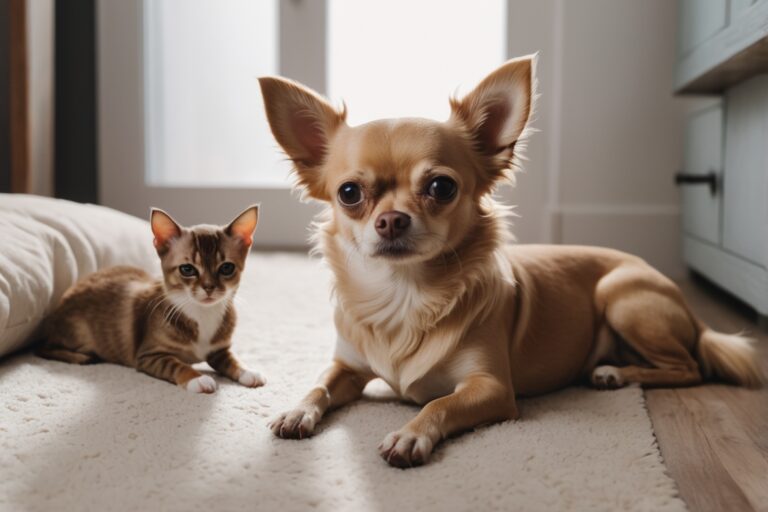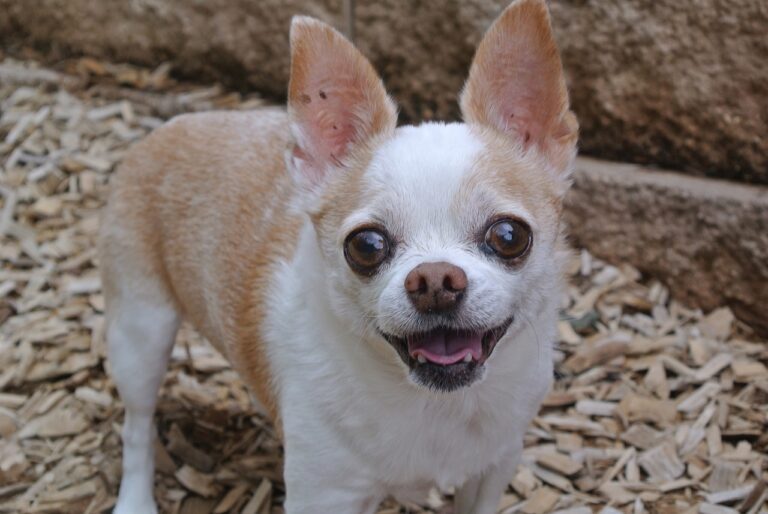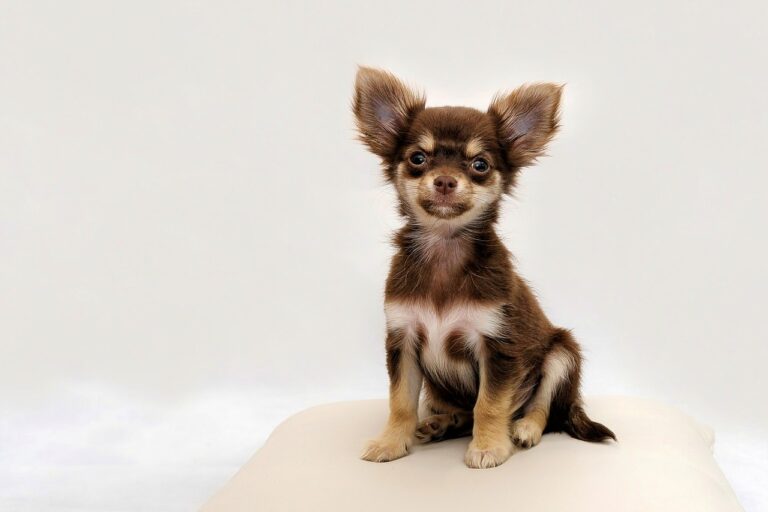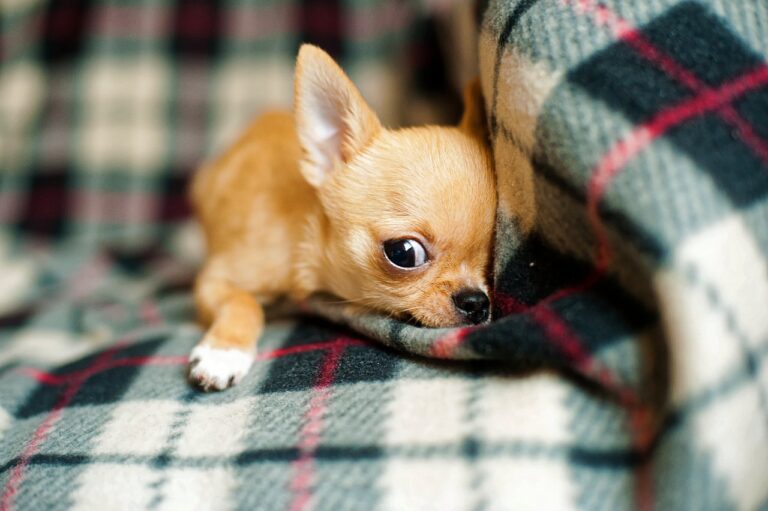Understanding Common Chihuahua Behavior Issues and How to Fix Them
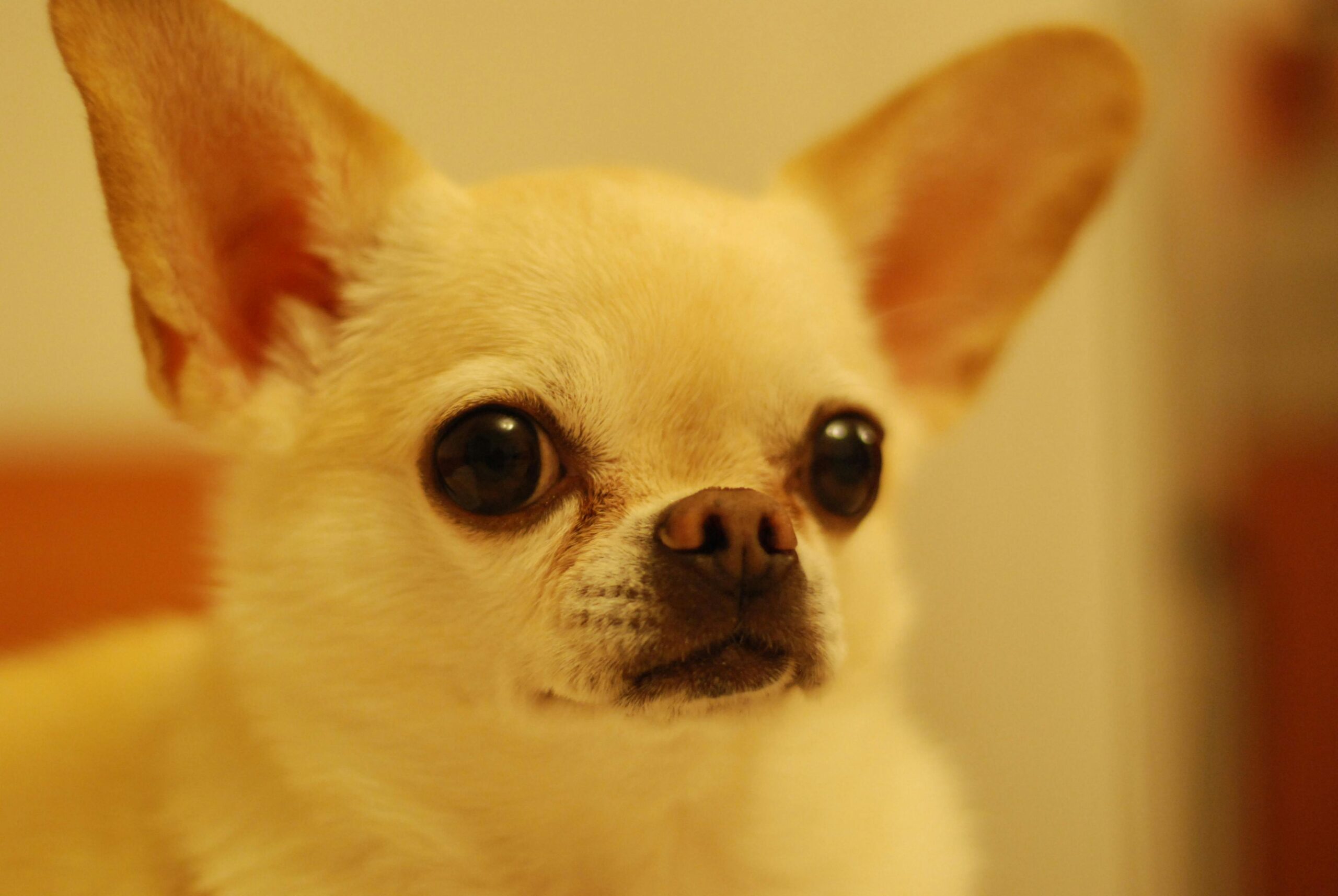
Chihuahuas may be small in size, but their personalities can be larger than life. While they are affectionate, loyal, and often lively companions, they are also known for certain behavior issues that can be challenging for owners. From excessive barking to aggression, these behavior problems are common in the breed, but they can be corrected with the right training and patience. Understanding why Chihuahuas exhibit these behaviors and knowing how to address them will help you foster a well-balanced, happy pet.
In this guide, we will explore some of the most common behavior issues in Chihuahuas, why they occur, and practical strategies to fix them. With the right approach, you can help your Chihuahua overcome these challenges and build a stronger bond with them.
1. Aggression and Fear-Based Behaviors
Aggression is one of the most common behavior issues seen in Chihuahuas, often rooted in fear or territorial instincts. Despite their small size, Chihuahuas can display aggressive behaviors like growling, snapping, or biting, particularly when they feel threatened or uneasy. Understanding the root cause of this aggression is essential to correcting the behavior and ensuring a safe and calm environment for both your Chihuahua and those around them.
1.1 Causes of Aggression in Chihuahuas
Aggression in Chihuahuas typically stems from a combination of fear, insecurity, and a lack of socialization. Chihuahuas are naturally territorial dogs and may feel the need to defend their space or owner, especially when they perceive a threat. In many cases, their small size makes them feel vulnerable, leading them to act aggressively in an attempt to protect themselves. This behavior is often exacerbated when Chihuahuas are not properly socialized from an early age, leading them to become fearful or anxious around strangers or other dogs.
Another common trigger for aggression is resource guarding. Chihuahuas may become possessive of their toys, food, or even their owners, reacting aggressively when they believe these resources are being threatened. This possessiveness can lead to confrontational behaviors, especially in multi-pet households or around unfamiliar people.
Fear-based aggression can also develop if a Chihuahua has had negative experiences in the past, such as being mistreated by strangers or other animals. In these cases, their aggression is a defensive response to perceived danger, even when there may not be a real threat present.
1.2 Addressing Aggressive Behavior
Correcting aggressive behavior in Chihuahuas requires a gentle and patient approach. Punishment or harsh discipline can worsen aggression by increasing the dog’s fear and anxiety. Instead, focus on positive reinforcement and training techniques that encourage calm, appropriate behavior.
One effective method is desensitization, which involves gradually exposing your Chihuahua to situations that trigger their aggression in a controlled and non-threatening manner. For example, if your Chihuahua becomes aggressive around strangers, start by introducing them to new people at a distance, rewarding them with treats and praise for calm behavior. Over time, reduce the distance and increase their comfort level with new situations.
Another important aspect of addressing aggression is teaching your Chihuahua to associate positive experiences with the presence of their triggers. For instance, when someone new enters your home, immediately reward your Chihuahua with a treat for staying calm. Consistent positive reinforcement helps your Chihuahua understand that these situations do not pose a threat.
It’s also crucial to avoid reinforcing aggressive behavior unintentionally. If your Chihuahua growls or snaps and you immediately pick them up or remove them from the situation, they may learn that aggression gets them what they want. Instead, remain calm and avoid rewarding aggressive behavior. Seek the help of a professional dog trainer or behaviorist if the aggression is severe or persists despite your efforts.
1.3 Socializing Your Chihuahua
Early and consistent socialization is key to preventing aggression in Chihuahuas. Socialization helps your Chihuahua feel more comfortable and confident in new environments and situations, reducing the likelihood of fear-based aggression. The best time to begin socializing your Chihuahua is during puppyhood, but even adult dogs can benefit from controlled exposure to new people, animals, and environments.
Start by introducing your Chihuahua to new experiences in a calm, positive way. Gradually expose them to different sounds, sights, and smells, ensuring that they remain relaxed throughout the process. Introducing them to friendly, well-behaved dogs in controlled settings can also help improve their social skills with other animals.
If your Chihuahua is older and already showing signs of fear or aggression, the process of socialization will take more time and patience. Begin by slowly exposing them to less threatening situations, such as calm, quiet environments before gradually introducing more stimulating or crowded settings. Reward them for staying calm and relaxed, and never force them into situations that cause overwhelming fear or anxiety. With time and consistent training, your Chihuahua will learn to feel more secure and less reactive in social situations.
2. Excessive Barking
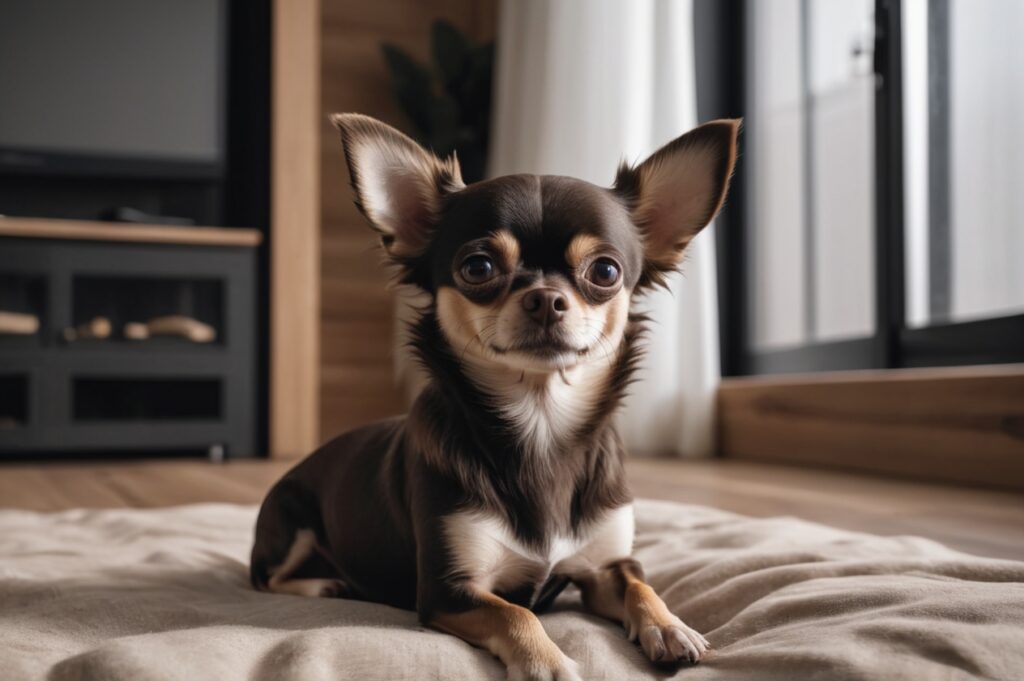
Barking is a natural behavior for all dogs, but Chihuahuas are particularly notorious for excessive barking. While it’s normal for Chihuahuas to bark as a way of communicating or expressing excitement, it can become a problem when they bark constantly, disrupting daily life. Understanding the causes of excessive barking and implementing training techniques to reduce it will help create a quieter, more peaceful environment for you and your Chihuahua.
2.1 Why Chihuahuas Bark Excessively
Chihuahuas bark for a variety of reasons, and it’s important to identify the underlying cause of their excessive barking to effectively address it. Some common reasons include:
- Boredom: Chihuahuas are intelligent and energetic dogs, and if they don’t receive enough mental and physical stimulation, they may resort to barking out of boredom or frustration.
- Anxiety: Many Chihuahuas bark excessively due to anxiety or fear, especially if they are left alone for extended periods or are exposed to new, unfamiliar situations. Separation anxiety is a common cause of excessive barking in Chihuahuas.
- Territorial Behavior: Chihuahuas are naturally protective of their homes and owners. They may bark at anything they perceive as a threat, such as strangers approaching the house, other dogs, or even small noises.
- Attention-Seeking: Chihuahuas are known for their strong bond with their owners, and sometimes they bark simply to get attention. If barking results in attention, even if it’s negative attention, they may continue this behavior.
2.2 Training to Reduce Barking
To reduce excessive barking, start by teaching your Chihuahua a “quiet” command. When your Chihuahua barks, calmly say “quiet” and, once they stop barking, immediately reward them with a treat and praise. This teaches them to associate quiet behavior with positive reinforcement. Be consistent with this command and use it in different situations where barking occurs.
Redirecting your Chihuahua’s attention can also help prevent excessive barking. When they start to bark, distract them with a toy or command them to perform another action, like sitting or lying down. Once they focus on the new task and stop barking, reward them for the desired behavior.
It’s also important to remove the triggers that may be causing the barking. If your Chihuahua is barking at people passing by the window, for example, close the curtains or move them to a quieter area of the house. Reducing their exposure to triggers can help decrease the frequency of barking episodes.
3. Housebreaking and Potty Training Issues
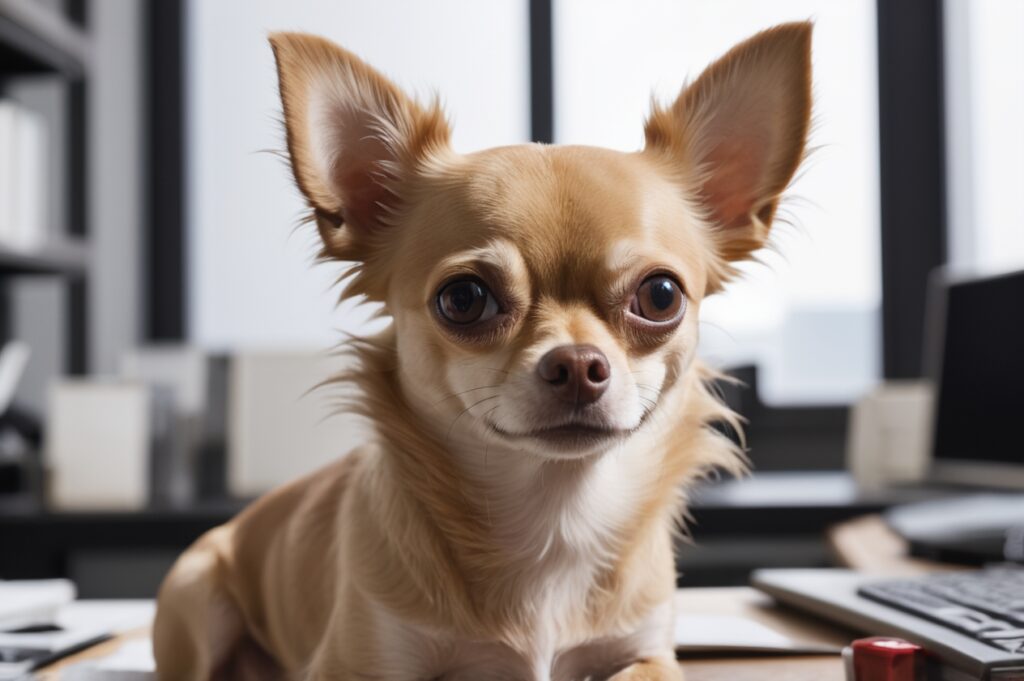
Housebreaking can be a challenge for many small dog breeds, including Chihuahuas. Their small size, stubborn nature, and specific physical needs can make potty training more difficult than it is with larger breeds. However, with patience, consistency, and the right techniques, you can successfully potty train your Chihuahua and avoid indoor accidents.
3.1 Why Chihuahuas Struggle with Potty Training
There are several reasons why Chihuahuas may struggle with potty training more than other breeds. One of the most significant factors is their small bladder size. Chihuahuas have tiny bladders, which means they need to urinate more frequently than larger dogs. This can result in more accidents, especially if they are not taken outside frequently enough. Puppies, in particular, need to go out multiple times throughout the day, often every hour when they’re young.
Additionally, Chihuahuas can be stubborn and independent, which may make them resistant to training at first. They can develop strong preferences for where they go to the bathroom, and breaking bad habits can take time. Finally, inconsistent training routines or not establishing a clear schedule can lead to confusion, making it harder for Chihuahuas to understand what’s expected of them.
3.2 Effective Potty Training Strategies
Potty training a Chihuahua requires consistency, patience, and positive reinforcement. The following strategies can help you establish good bathroom habits:
- Crate Training: Crate training is an effective method for housebreaking Chihuahuas. Dogs generally avoid soiling their sleeping area, so using a crate helps teach them to hold their bladder until they are taken outside. Make sure the crate is appropriately sized, offering enough room for them to stand and turn around, but not so large that they can use one side as a bathroom.
- Consistent Schedule: Establishing a consistent potty schedule is crucial. Take your Chihuahua outside first thing in the morning, after meals, and every few hours throughout the day. Puppies need to go out more frequently, sometimes every hour. Stick to a routine to help your Chihuahua learn when and where they should go to the bathroom.
- Positive Reinforcement: Praise and reward your Chihuahua immediately after they go to the bathroom outside. Use treats and verbal encouragement to reinforce the behavior. Avoid punishing your dog for accidents, as this can create fear and anxiety, making potty training more difficult.
For indoor training, if you’re unable to take your Chihuahua outside frequently enough, using pee pads or a designated indoor potty area can help manage their bathroom needs. However, it’s essential to be consistent with whichever method you choose to avoid confusion.
3.3 Handling Accidents
Accidents are a normal part of the potty training process, and it’s important to handle them calmly and effectively. If you catch your Chihuahua in the act, gently interrupt them with a verbal cue (like “no” or “uh-uh”) and immediately take them outside to finish. If they go to the bathroom outside, reward them with praise and a treat.
Avoid punishing your Chihuahua after the fact, as they won’t understand the connection between the punishment and the earlier accident. Clean up any accidents promptly with an enzymatic cleaner to remove the scent, as leftover odors can encourage repeat accidents in the same spot. With time, consistency, and patience, your Chihuahua will learn to go to the bathroom in the appropriate place.
4. Separation Anxiety
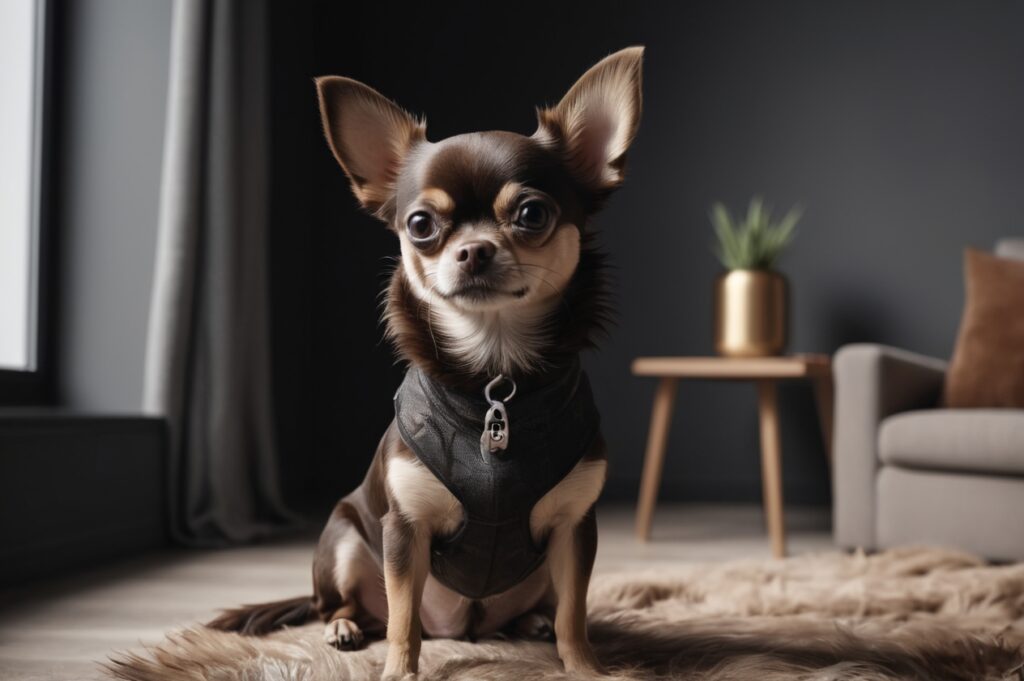
Chihuahuas are known for their strong bonds with their owners, and this can sometimes lead to separation anxiety when they are left alone. Separation anxiety can manifest in various ways, such as excessive barking, destructive behavior, or accidents in the house. Understanding the signs of separation anxiety and implementing strategies to reduce your Chihuahua’s stress when you’re not home can help prevent these issues from escalating.
4.1 Recognizing Separation Anxiety in Chihuahuas
Separation anxiety occurs when a dog becomes overly stressed or anxious about being left alone. Chihuahuas are particularly prone to this condition due to their strong attachment to their owners. Some common signs of separation anxiety in Chihuahuas include:
- Excessive Barking or Whining: If your Chihuahua barks, howls, or whines excessively when you leave the house, it may be a sign of separation anxiety.
- Destructive Behavior: Chewing on furniture, shoes, or other household items while you’re away can indicate that your Chihuahua is anxious and trying to relieve stress.
- Accidents in the House: Even if your Chihuahua is potty trained, they may have accidents in the house when left alone due to anxiety.
- Pacing or Restlessness: Constant pacing or agitation when you’re preparing to leave can also signal that your Chihuahua is experiencing stress about being left alone.
4.2 Building Independence in Your Chihuahua
To reduce separation anxiety, it’s important to help your Chihuahua feel more comfortable being alone. Start by gradually increasing the amount of time they spend alone, beginning with short intervals and slowly extending the duration. Avoid making a big deal about leaving or returning home—keeping your comings and goings low-key can help reduce your Chihuahua’s anxiety.
You can also practice independence-building exercises by encouraging your Chihuahua to spend time in a separate room or crate while you’re still at home. Reward them for staying calm and relaxed during these moments, reinforcing the idea that being alone is a positive experience.
Desensitizing your Chihuahua to the triggers that indicate you’re leaving, such as picking up your keys or putting on your coat, can also help. Practice these actions without actually leaving, so your dog learns not to associate them with being left alone.
4.3 Reducing Stress with Comfort Items and Routines
Creating a comfortable environment for your Chihuahua while you’re away can help alleviate separation anxiety. Leave behind familiar items that provide comfort, such as a favorite blanket, toy, or an item of your clothing that carries your scent. This can help your Chihuahua feel more secure and less anxious in your absence.
Establishing a consistent routine can also help reduce stress. Chihuahuas thrive on routine, so sticking to a regular schedule for feeding, potty breaks, and playtime can provide them with a sense of security. Exercise your Chihuahua before you leave, as a tired dog is more likely to relax and sleep while you’re away.

